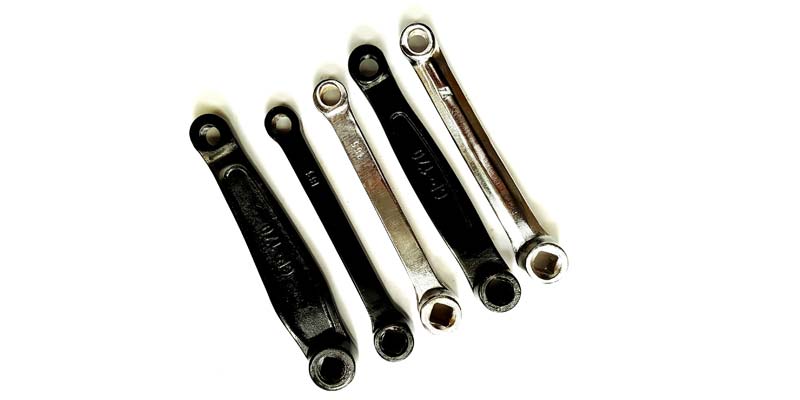- Contact Innally, Let you purchase forgings in China more favorable prices, products more assured!
- Hotline:+(86)15038323776 Email:innally@innally.com
What technical parameters and specifications do you need to consider when purchasing 6061 aluminum alloy forgings?
- Category: Aluminium alloy forging, Thermal forging
- |
- Date: 29/08/2023
when purchasing 6061 aluminum alloy forgings, it is necessary to clarify the above technical parameters and specifications, and fully communicate and negotiate with suppliers to ensure that the purchased products meet the expected requirements and application needs.
Product Details
When purchasing 6061 aluminum alloy forgings, the following technical parameters and specifications need to be considered:
Material composition: Understand the chemical composition of 6061 aluminum alloy, including the content range of main elements such as aluminum, magnesium, silicon, copper, etc., to ensure that the purchased aluminum alloy meets the requirements.
Strength requirements: According to the specific application needs to determine the required minimum strength requirements, such as tensile strength, yield strength, etc. This can be determined according to engineering requirements to ensure that the purchased aluminum alloy forgings have sufficient strength during use. Size requirements: Determine the size range of aluminum alloy forgings, including length, width, height, etc. These requirements can be based on product design and practical application requirements to ensure that the purchased forgings can be correctly chimed and installed.

Surface quality: Clear the surface quality requirements of the forging, including finish, flatness, no defects, etc. This can be determined according to the specific application scenario to ensure that the purchased aluminum alloy forgings look good and can meet the requirements of assembly and connection.
Heat treatment requirements: According to the application needs to determine whether the forging needs heat treatment in the production process, such as aging treatment, quenching, etc. These requirements can be determined according to specifications and practical applications to ensure that the purchased aluminum alloy forgings achieve the required strength and hardness.
Surface treatment requirements: Determine the surface treatment of the forging, such as anodizing, spraying, etc. These requirements can be determined based on product appearance requirements and corrosion resistance requirements to ensure that the purchased forgings have the desired surface characteristics.
Relevant standards and certification requirements: Consider relevant industry standards and certification requirements, such as ISO, ASTM, etc., to ensure that the purchased aluminum alloy forgings comply with the quality management system and can meet the requirements of the specific industry.
Traceability requirements: Suppliers are required to provide a complete quality record and traceability system to ensure that the purchased aluminum forgings are traceable and can be traced back to specific production batches and processes.
To sum up, when purchasing 6061 aluminum alloy forgings, it is necessary to clarify the above technical parameters and specifications, and fully communicate and negotiate with suppliers to ensure that the purchased products meet the expected requirements and application needs.
nannan
INNALLY mainly provides you with various types of cast and forged parts products. Welcome your inquiries! innally@innally.com
Related Products
Search
Forging center
- Steel forgings
- Aluminium alloy forging
- Titanium alloy forging
- Stainless steel forging
- Copper forging
- Automotive forgings
- Locomotive forging
- Bicycle forgings
- Motorcycle forging
- Rigging and fasteners
- Bearing forging
- Electric power fittings
- Marine forging
- Mechanical forgings for metalworking
- Mining machinery forgings
- Marine engineering forgings
- Construction machinery forgings
Popular product

© 2025. All Rights Reserved.






